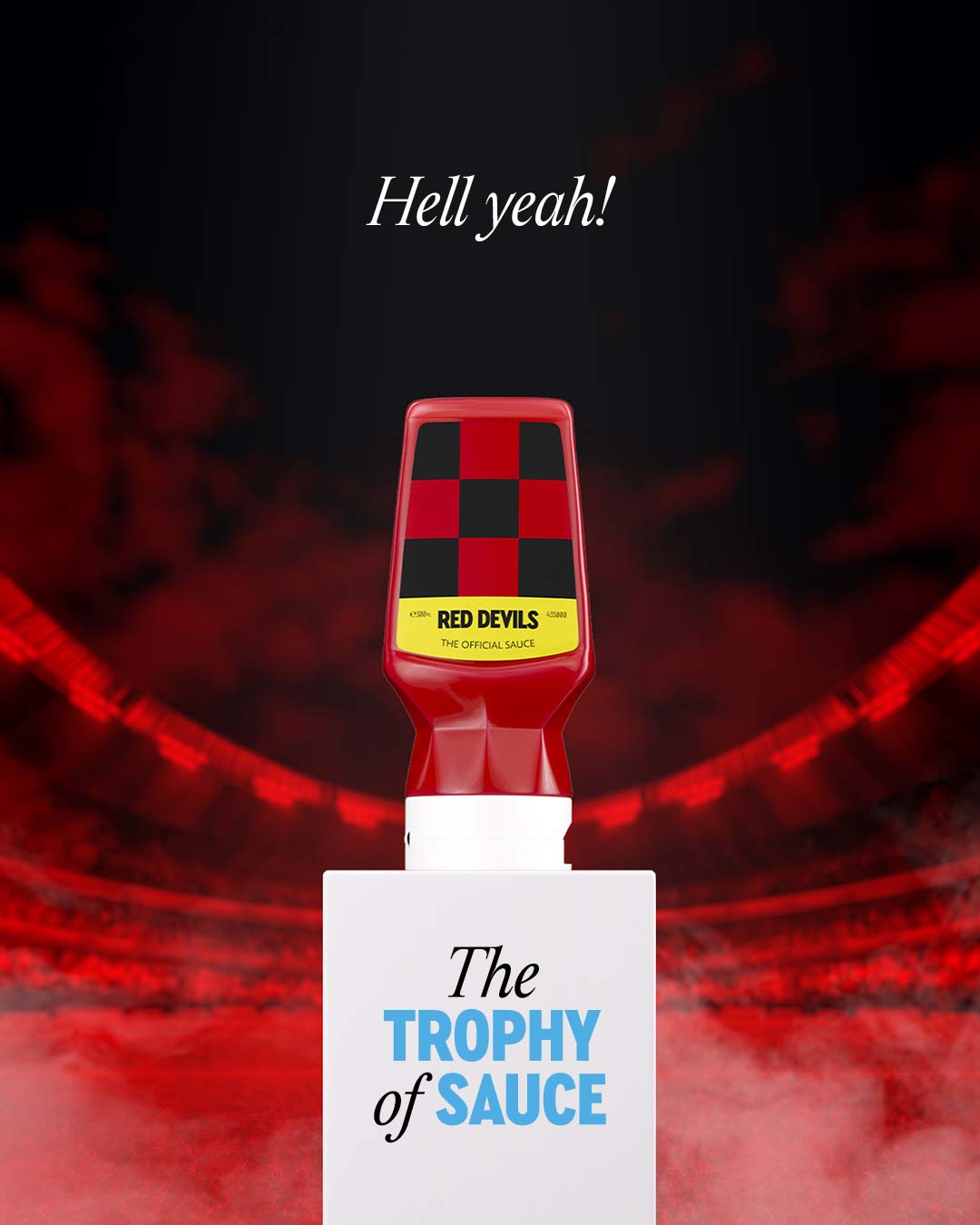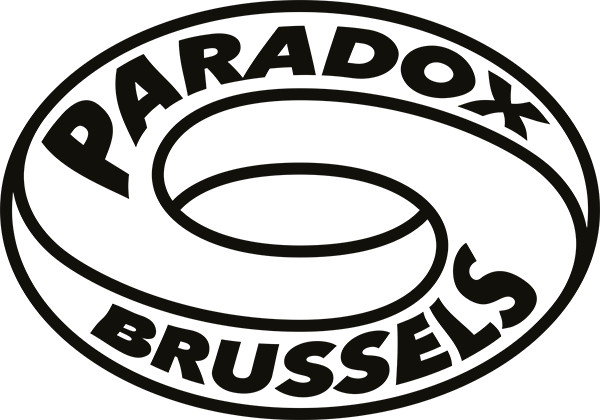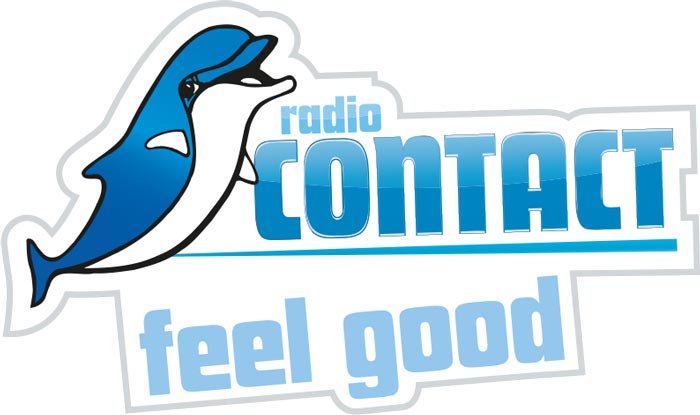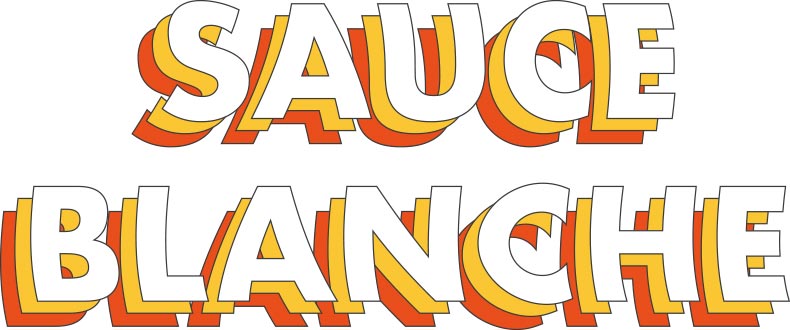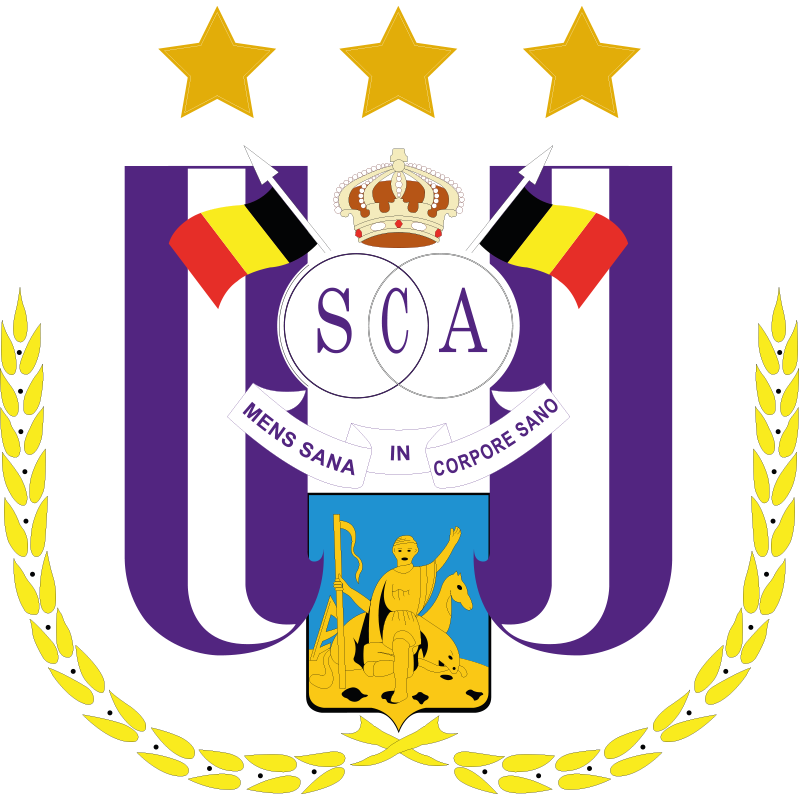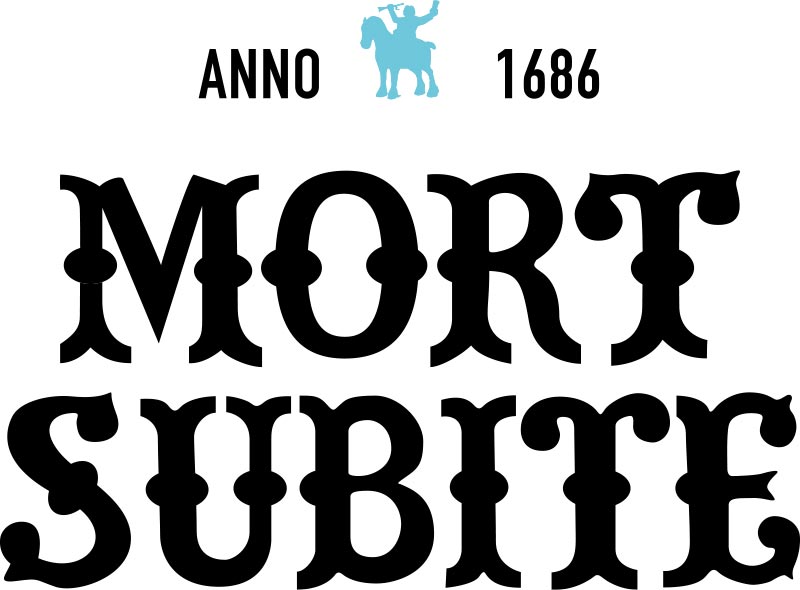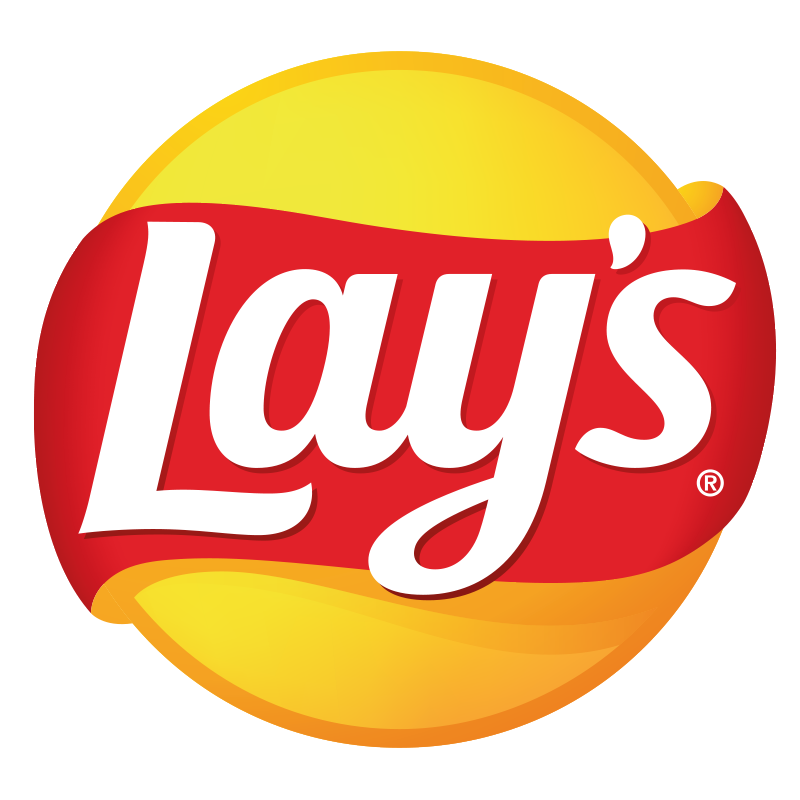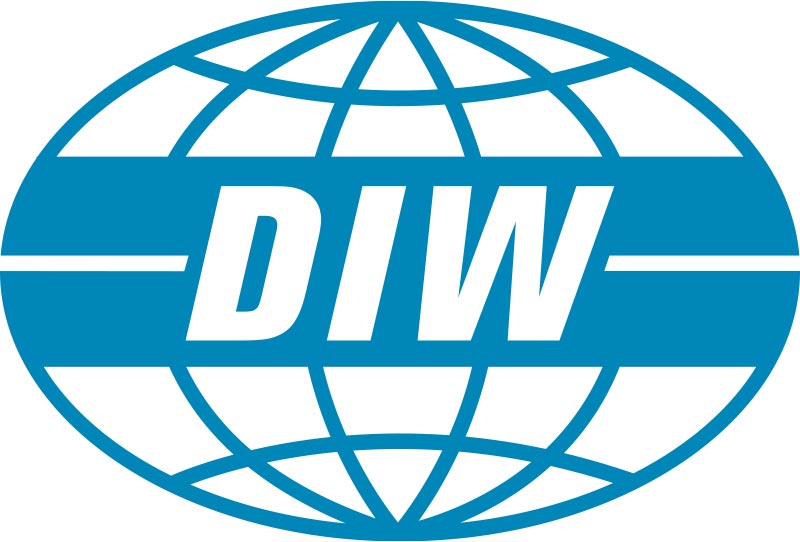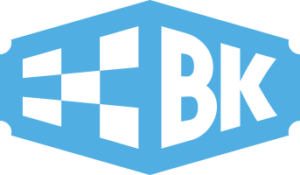
Store
From us to you,
wherever you live on Earth.
making
- CONCEPT STORE EVENT RESTAURANT FOODTRUCK
- CONCEPT STORE EVENT RESTAURANT FOODTRUCK
- CONCEPT STORE EVENT RESTAURANT FOODTRUCK
- CONCEPT STORE EVENT RESTAURANT FOODTRUCK
- CONCEPT STORE EVENT RESTAURANT FOODTRUCK
- CONCEPT STORE EVENT RESTAURANT FOODTRUCK
- CONCEPT STORE EVENT RESTAURANT FOODTRUCK
- CONCEPT STORE EVENT RESTAURANT FOODTRUCK
- CONCEPT STORE EVENT RESTAURANT FOODTRUCK
- CONCEPT STORE EVENT RESTAURANT FOODTRUCK
- CONCEPT STORE EVENT RESTAURANT FOODTRUCK
- CONCEPT STORE EVENT RESTAURANT FOODTRUCK
- CONCEPT STORE EVENT RESTAURANT FOODTRUCK
- CONCEPT STORE EVENT RESTAURANT FOODTRUCK
- CONCEPT STORE EVENT RESTAURANT FOODTRUCK
- CONCEPT STORE EVENT RESTAURANT FOODTRUCK
- CONCEPT STORE EVENT RESTAURANT FOODTRUCK
- CONCEPT STORE EVENT RESTAURANT FOODTRUCK
- CONCEPT STORE EVENT RESTAURANT FOODTRUCK
- CONCEPT STORE EVENT RESTAURANT FOODTRUCK
- CONCEPT STORE EVENT RESTAURANT FOODTRUCK
- CONCEPT STORE EVENT RESTAURANT FOODTRUCK
- CONCEPT STORE EVENT RESTAURANT FOODTRUCK
- CONCEPT STORE EVENT RESTAURANT FOODTRUCK
- CONCEPT STORE EVENT RESTAURANT FOODTRUCK
- CONCEPT STORE EVENT RESTAURANT FOODTRUCK
- CONCEPT STORE EVENT RESTAURANT FOODTRUCK
- CONCEPT STORE EVENT RESTAURANT FOODTRUCK
- CONCEPT STORE EVENT RESTAURANT FOODTRUCK
- CONCEPT STORE EVENT RESTAURANT FOODTRUCK
- CONCEPT STORE EVENT RESTAURANT FOODTRUCK
- CONCEPT STORE EVENT RESTAURANT FOODTRUCK
- CONCEPT STORE EVENT RESTAURANT FOODTRUCK
- CONCEPT STORE EVENT RESTAURANT FOODTRUCK
- CONCEPT STORE EVENT RESTAURANT FOODTRUCK
- CONCEPT STORE EVENT RESTAURANT FOODTRUCK
- CONCEPT STORE EVENT RESTAURANT FOODTRUCK
- CONCEPT STORE EVENT RESTAURANT FOODTRUCK
- CONCEPT STORE EVENT RESTAURANT FOODTRUCK
- CONCEPT STORE EVENT RESTAURANT FOODTRUCK
- CONCEPT STORE EVENT RESTAURANT FOODTRUCK
- CONCEPT STORE EVENT RESTAURANT FOODTRUCK
- CONCEPT STORE EVENT RESTAURANT FOODTRUCK
- CONCEPT STORE EVENT RESTAURANT FOODTRUCK
- CONCEPT STORE EVENT RESTAURANT FOODTRUCK
- CONCEPT STORE EVENT RESTAURANT FOODTRUCK
- CONCEPT STORE EVENT RESTAURANT FOODTRUCK
- CONCEPT STORE EVENT RESTAURANT FOODTRUCK
- CONCEPT STORE EVENT RESTAURANT FOODTRUCK
- CONCEPT STORE EVENT RESTAURANT FOODTRUCK
- CONCEPT STORE EVENT RESTAURANT FOODTRUCK
- CONCEPT STORE EVENT RESTAURANT FOODTRUCK
- CONCEPT STORE EVENT RESTAURANT FOODTRUCK
- CONCEPT STORE EVENT RESTAURANT FOODTRUCK
- CONCEPT STORE EVENT RESTAURANT FOODTRUCK
- CONCEPT STORE EVENT RESTAURANT FOODTRUCK
- CONCEPT STORE EVENT RESTAURANT FOODTRUCK
- CONCEPT STORE EVENT RESTAURANT FOODTRUCK
- CONCEPT STORE EVENT RESTAURANT FOODTRUCK
- CONCEPT STORE EVENT RESTAURANT FOODTRUCK
- CONCEPT STORE EVENT RESTAURANT FOODTRUCK
- CONCEPT STORE EVENT RESTAURANT FOODTRUCK
- CONCEPT STORE EVENT RESTAURANT FOODTRUCK
- CONCEPT STORE EVENT RESTAURANT FOODTRUCK
- CONCEPT STORE EVENT RESTAURANT FOODTRUCK
- CONCEPT STORE EVENT RESTAURANT FOODTRUCK
- CONCEPT STORE EVENT RESTAURANT FOODTRUCK
- CONCEPT STORE EVENT RESTAURANT FOODTRUCK
- CONCEPT STORE EVENT RESTAURANT FOODTRUCK
- CONCEPT STORE EVENT RESTAURANT FOODTRUCK
- CONCEPT STORE EVENT RESTAURANT FOODTRUCK
- CONCEPT STORE EVENT RESTAURANT FOODTRUCK
- CONCEPT STORE EVENT RESTAURANT FOODTRUCK
- CONCEPT STORE EVENT RESTAURANT FOODTRUCK
- CONCEPT STORE EVENT RESTAURANT FOODTRUCK
- CONCEPT STORE EVENT RESTAURANT FOODTRUCK
- CONCEPT STORE EVENT RESTAURANT FOODTRUCK
- CONCEPT STORE EVENT RESTAURANT FOODTRUCK
- CONCEPT STORE EVENT RESTAURANT FOODTRUCK
- CONCEPT STORE EVENT RESTAURANT FOODTRUCK
- CONCEPT STORE EVENT RESTAURANT FOODTRUCK
- CONCEPT STORE EVENT RESTAURANT FOODTRUCK
- CONCEPT STORE EVENT RESTAURANT FOODTRUCK
- CONCEPT STORE EVENT RESTAURANT FOODTRUCK
- CONCEPT STORE EVENT RESTAURANT FOODTRUCK
- CONCEPT STORE EVENT RESTAURANT FOODTRUCK
- CONCEPT STORE EVENT RESTAURANT FOODTRUCK
- CONCEPT STORE EVENT RESTAURANT FOODTRUCK
- CONCEPT STORE EVENT RESTAURANT FOODTRUCK
- CONCEPT STORE EVENT RESTAURANT FOODTRUCK
- CONCEPT STORE EVENT RESTAURANT FOODTRUCK
- CONCEPT STORE EVENT RESTAURANT FOODTRUCK
- CONCEPT STORE EVENT RESTAURANT FOODTRUCK
- CONCEPT STORE EVENT RESTAURANT FOODTRUCK
- CONCEPT STORE EVENT RESTAURANT FOODTRUCK
- CONCEPT STORE EVENT RESTAURANT FOODTRUCK
- CONCEPT STORE EVENT RESTAURANT FOODTRUCK
- CONCEPT STORE EVENT RESTAURANT FOODTRUCK
- CONCEPT STORE EVENT RESTAURANT FOODTRUCK
- CONCEPT STORE EVENT RESTAURANT FOODTRUCK
- CONCEPT STORE EVENT RESTAURANT FOODTRUCK
- CONCEPT STORE EVENT RESTAURANT FOODTRUCK
- CONCEPT STORE EVENT RESTAURANT FOODTRUCK
- CONCEPT STORE EVENT RESTAURANT FOODTRUCK
- CONCEPT STORE EVENT RESTAURANT FOODTRUCK
- CONCEPT STORE EVENT RESTAURANT FOODTRUCK
- CONCEPT STORE EVENT RESTAURANT FOODTRUCK
- CONCEPT STORE EVENT RESTAURANT FOODTRUCK
- CONCEPT STORE EVENT RESTAURANT FOODTRUCK
- CONCEPT STORE EVENT RESTAURANT FOODTRUCK
- CONCEPT STORE EVENT RESTAURANT FOODTRUCK
- CONCEPT STORE EVENT RESTAURANT FOODTRUCK
- CONCEPT STORE EVENT RESTAURANT FOODTRUCK
- CONCEPT STORE EVENT RESTAURANT FOODTRUCK
- CONCEPT STORE EVENT RESTAURANT FOODTRUCK
- CONCEPT STORE EVENT RESTAURANT FOODTRUCK
- CONCEPT STORE EVENT RESTAURANT FOODTRUCK
- CONCEPT STORE EVENT RESTAURANT FOODTRUCK
- CONCEPT STORE EVENT RESTAURANT FOODTRUCK
- CONCEPT STORE EVENT RESTAURANT FOODTRUCK
- CONCEPT STORE EVENT RESTAURANT FOODTRUCK
- CONCEPT STORE EVENT RESTAURANT FOODTRUCK
- CONCEPT STORE EVENT RESTAURANT FOODTRUCK
- CONCEPT STORE EVENT RESTAURANT FOODTRUCK
- CONCEPT STORE EVENT RESTAURANT FOODTRUCK
- CONCEPT STORE EVENT RESTAURANT FOODTRUCK
- CONCEPT STORE EVENT RESTAURANT FOODTRUCK
- CONCEPT STORE EVENT RESTAURANT FOODTRUCK
- CONCEPT STORE EVENT RESTAURANT FOODTRUCK
- CONCEPT STORE EVENT RESTAURANT FOODTRUCK
- CONCEPT STORE EVENT RESTAURANT FOODTRUCK
- CONCEPT STORE EVENT RESTAURANT FOODTRUCK
- CONCEPT STORE EVENT RESTAURANT FOODTRUCK
- CONCEPT STORE EVENT RESTAURANT FOODTRUCK
- CONCEPT STORE EVENT RESTAURANT FOODTRUCK
- CONCEPT STORE EVENT RESTAURANT FOODTRUCK
- CONCEPT STORE EVENT RESTAURANT FOODTRUCK
- CONCEPT STORE EVENT RESTAURANT FOODTRUCK
- BUTCHERY COMPANY GIFT HOTEL GROCERY
- BUTCHERY COMPANY GIFT HOTEL GROCERY
- BUTCHERY COMPANY GIFT HOTEL GROCERY
- BUTCHERY COMPANY GIFT HOTEL GROCERY
- BUTCHERY COMPANY GIFT HOTEL GROCERY
- BUTCHERY COMPANY GIFT HOTEL GROCERY
- BUTCHERY COMPANY GIFT HOTEL GROCERY
- BUTCHERY COMPANY GIFT HOTEL GROCERY
- BUTCHERY COMPANY GIFT HOTEL GROCERY
- BUTCHERY COMPANY GIFT HOTEL GROCERY
- BUTCHERY COMPANY GIFT HOTEL GROCERY
- BUTCHERY COMPANY GIFT HOTEL GROCERY
- BUTCHERY COMPANY GIFT HOTEL GROCERY
- BUTCHERY COMPANY GIFT HOTEL GROCERY
- BUTCHERY COMPANY GIFT HOTEL GROCERY
- BUTCHERY COMPANY GIFT HOTEL GROCERY
- BUTCHERY COMPANY GIFT HOTEL GROCERY
- BUTCHERY COMPANY GIFT HOTEL GROCERY
- BUTCHERY COMPANY GIFT HOTEL GROCERY
- BUTCHERY COMPANY GIFT HOTEL GROCERY
- BUTCHERY COMPANY GIFT HOTEL GROCERY
- BUTCHERY COMPANY GIFT HOTEL GROCERY
- BUTCHERY COMPANY GIFT HOTEL GROCERY
- BUTCHERY COMPANY GIFT HOTEL GROCERY
- BUTCHERY COMPANY GIFT HOTEL GROCERY
- BUTCHERY COMPANY GIFT HOTEL GROCERY
- BUTCHERY COMPANY GIFT HOTEL GROCERY
- BUTCHERY COMPANY GIFT HOTEL GROCERY
- BUTCHERY COMPANY GIFT HOTEL GROCERY
- BUTCHERY COMPANY GIFT HOTEL GROCERY
- BUTCHERY COMPANY GIFT HOTEL GROCERY
- BUTCHERY COMPANY GIFT HOTEL GROCERY
- BUTCHERY COMPANY GIFT HOTEL GROCERY
- BUTCHERY COMPANY GIFT HOTEL GROCERY
- BUTCHERY COMPANY GIFT HOTEL GROCERY
- BUTCHERY COMPANY GIFT HOTEL GROCERY
- BUTCHERY COMPANY GIFT HOTEL GROCERY
- BUTCHERY COMPANY GIFT HOTEL GROCERY
- BUTCHERY COMPANY GIFT HOTEL GROCERY
- BUTCHERY COMPANY GIFT HOTEL GROCERY
- BUTCHERY COMPANY GIFT HOTEL GROCERY
- BUTCHERY COMPANY GIFT HOTEL GROCERY
- BUTCHERY COMPANY GIFT HOTEL GROCERY
- BUTCHERY COMPANY GIFT HOTEL GROCERY
- BUTCHERY COMPANY GIFT HOTEL GROCERY
- BUTCHERY COMPANY GIFT HOTEL GROCERY
- BUTCHERY COMPANY GIFT HOTEL GROCERY
- BUTCHERY COMPANY GIFT HOTEL GROCERY
- BUTCHERY COMPANY GIFT HOTEL GROCERY
- BUTCHERY COMPANY GIFT HOTEL GROCERY
- BUTCHERY COMPANY GIFT HOTEL GROCERY
- BUTCHERY COMPANY GIFT HOTEL GROCERY
- BUTCHERY COMPANY GIFT HOTEL GROCERY
- BUTCHERY COMPANY GIFT HOTEL GROCERY
- BUTCHERY COMPANY GIFT HOTEL GROCERY
- BUTCHERY COMPANY GIFT HOTEL GROCERY
- BUTCHERY COMPANY GIFT HOTEL GROCERY
- BUTCHERY COMPANY GIFT HOTEL GROCERY
- BUTCHERY COMPANY GIFT HOTEL GROCERY
- BUTCHERY COMPANY GIFT HOTEL GROCERY
- BUTCHERY COMPANY GIFT HOTEL GROCERY
- BUTCHERY COMPANY GIFT HOTEL GROCERY
- BUTCHERY COMPANY GIFT HOTEL GROCERY
- BUTCHERY COMPANY GIFT HOTEL GROCERY
- BUTCHERY COMPANY GIFT HOTEL GROCERY
- BUTCHERY COMPANY GIFT HOTEL GROCERY
- BUTCHERY COMPANY GIFT HOTEL GROCERY
- BUTCHERY COMPANY GIFT HOTEL GROCERY
- BUTCHERY COMPANY GIFT HOTEL GROCERY
- BUTCHERY COMPANY GIFT HOTEL GROCERY
- BUTCHERY COMPANY GIFT HOTEL GROCERY
- BUTCHERY COMPANY GIFT HOTEL GROCERY
- BUTCHERY COMPANY GIFT HOTEL GROCERY
- BUTCHERY COMPANY GIFT HOTEL GROCERY
- BUTCHERY COMPANY GIFT HOTEL GROCERY
- BUTCHERY COMPANY GIFT HOTEL GROCERY
- BUTCHERY COMPANY GIFT HOTEL GROCERY
- BUTCHERY COMPANY GIFT HOTEL GROCERY
- BUTCHERY COMPANY GIFT HOTEL GROCERY
- BUTCHERY COMPANY GIFT HOTEL GROCERY
- BUTCHERY COMPANY GIFT HOTEL GROCERY
- BUTCHERY COMPANY GIFT HOTEL GROCERY
- BUTCHERY COMPANY GIFT HOTEL GROCERY
- BUTCHERY COMPANY GIFT HOTEL GROCERY
- BUTCHERY COMPANY GIFT HOTEL GROCERY
- BUTCHERY COMPANY GIFT HOTEL GROCERY
- BUTCHERY COMPANY GIFT HOTEL GROCERY
- BUTCHERY COMPANY GIFT HOTEL GROCERY
- BUTCHERY COMPANY GIFT HOTEL GROCERY
- BUTCHERY COMPANY GIFT HOTEL GROCERY
- BUTCHERY COMPANY GIFT HOTEL GROCERY
- BUTCHERY COMPANY GIFT HOTEL GROCERY
- BUTCHERY COMPANY GIFT HOTEL GROCERY
- BUTCHERY COMPANY GIFT HOTEL GROCERY
- BUTCHERY COMPANY GIFT HOTEL GROCERY
- BUTCHERY COMPANY GIFT HOTEL GROCERY
- BUTCHERY COMPANY GIFT HOTEL GROCERY
- BUTCHERY COMPANY GIFT HOTEL GROCERY
- BUTCHERY COMPANY GIFT HOTEL GROCERY
- BUTCHERY COMPANY GIFT HOTEL GROCERY
- BUTCHERY COMPANY GIFT HOTEL GROCERY
- BUTCHERY COMPANY GIFT HOTEL GROCERY
- BUTCHERY COMPANY GIFT HOTEL GROCERY
- BUTCHERY COMPANY GIFT HOTEL GROCERY
- BUTCHERY COMPANY GIFT HOTEL GROCERY
- BUTCHERY COMPANY GIFT HOTEL GROCERY
- BUTCHERY COMPANY GIFT HOTEL GROCERY
- BUTCHERY COMPANY GIFT HOTEL GROCERY
- BUTCHERY COMPANY GIFT HOTEL GROCERY
- BUTCHERY COMPANY GIFT HOTEL GROCERY
- BUTCHERY COMPANY GIFT HOTEL GROCERY
- BUTCHERY COMPANY GIFT HOTEL GROCERY
- BUTCHERY COMPANY GIFT HOTEL GROCERY
- BUTCHERY COMPANY GIFT HOTEL GROCERY
- BUTCHERY COMPANY GIFT HOTEL GROCERY
- BUTCHERY COMPANY GIFT HOTEL GROCERY
- BUTCHERY COMPANY GIFT HOTEL GROCERY
- BUTCHERY COMPANY GIFT HOTEL GROCERY
- BUTCHERY COMPANY GIFT HOTEL GROCERY
- BUTCHERY COMPANY GIFT HOTEL GROCERY
- BUTCHERY COMPANY GIFT HOTEL GROCERY
- BUTCHERY COMPANY GIFT HOTEL GROCERY
- BUTCHERY COMPANY GIFT HOTEL GROCERY
- BUTCHERY COMPANY GIFT HOTEL GROCERY
- BUTCHERY COMPANY GIFT HOTEL GROCERY
- BUTCHERY COMPANY GIFT HOTEL GROCERY
- BUTCHERY COMPANY GIFT HOTEL GROCERY
- BUTCHERY COMPANY GIFT HOTEL GROCERY
- BUTCHERY COMPANY GIFT HOTEL GROCERY
- BUTCHERY COMPANY GIFT HOTEL GROCERY
- BUTCHERY COMPANY GIFT HOTEL GROCERY
- BUTCHERY COMPANY GIFT HOTEL GROCERY
- BUTCHERY COMPANY GIFT HOTEL GROCERY
- BUTCHERY COMPANY GIFT HOTEL GROCERY
- BUTCHERY COMPANY GIFT HOTEL GROCERY
- BUTCHERY COMPANY GIFT HOTEL GROCERY
- BUTCHERY COMPANY GIFT HOTEL GROCERY
- BUTCHERY COMPANY GIFT HOTEL GROCERY
- CATERING FOOD SERVICE RETAIL SNACKING
- CATERING FOOD SERVICE RETAIL SNACKING
- CATERING FOOD SERVICE RETAIL SNACKING
- CATERING FOOD SERVICE RETAIL SNACKING
- CATERING FOOD SERVICE RETAIL SNACKING
- CATERING FOOD SERVICE RETAIL SNACKING
- CATERING FOOD SERVICE RETAIL SNACKING
- CATERING FOOD SERVICE RETAIL SNACKING
- CATERING FOOD SERVICE RETAIL SNACKING
- CATERING FOOD SERVICE RETAIL SNACKING
- CATERING FOOD SERVICE RETAIL SNACKING
- CATERING FOOD SERVICE RETAIL SNACKING
- CATERING FOOD SERVICE RETAIL SNACKING
- CATERING FOOD SERVICE RETAIL SNACKING
- CATERING FOOD SERVICE RETAIL SNACKING
- CATERING FOOD SERVICE RETAIL SNACKING
- CATERING FOOD SERVICE RETAIL SNACKING
- CATERING FOOD SERVICE RETAIL SNACKING
- CATERING FOOD SERVICE RETAIL SNACKING
- CATERING FOOD SERVICE RETAIL SNACKING
- CATERING FOOD SERVICE RETAIL SNACKING
- CATERING FOOD SERVICE RETAIL SNACKING
- CATERING FOOD SERVICE RETAIL SNACKING
- CATERING FOOD SERVICE RETAIL SNACKING
- CATERING FOOD SERVICE RETAIL SNACKING
- CATERING FOOD SERVICE RETAIL SNACKING
- CATERING FOOD SERVICE RETAIL SNACKING
- CATERING FOOD SERVICE RETAIL SNACKING
- CATERING FOOD SERVICE RETAIL SNACKING
- CATERING FOOD SERVICE RETAIL SNACKING
- CATERING FOOD SERVICE RETAIL SNACKING
- CATERING FOOD SERVICE RETAIL SNACKING
- CATERING FOOD SERVICE RETAIL SNACKING
- CATERING FOOD SERVICE RETAIL SNACKING
- CATERING FOOD SERVICE RETAIL SNACKING
- CATERING FOOD SERVICE RETAIL SNACKING
- CATERING FOOD SERVICE RETAIL SNACKING
- CATERING FOOD SERVICE RETAIL SNACKING
- CATERING FOOD SERVICE RETAIL SNACKING
- CATERING FOOD SERVICE RETAIL SNACKING
- CATERING FOOD SERVICE RETAIL SNACKING
- CATERING FOOD SERVICE RETAIL SNACKING
- CATERING FOOD SERVICE RETAIL SNACKING
- CATERING FOOD SERVICE RETAIL SNACKING
- CATERING FOOD SERVICE RETAIL SNACKING
- CATERING FOOD SERVICE RETAIL SNACKING
- CATERING FOOD SERVICE RETAIL SNACKING
- CATERING FOOD SERVICE RETAIL SNACKING
- CATERING FOOD SERVICE RETAIL SNACKING
- CATERING FOOD SERVICE RETAIL SNACKING
- CATERING FOOD SERVICE RETAIL SNACKING
- CATERING FOOD SERVICE RETAIL SNACKING
- CATERING FOOD SERVICE RETAIL SNACKING
- CATERING FOOD SERVICE RETAIL SNACKING
- CATERING FOOD SERVICE RETAIL SNACKING
- CATERING FOOD SERVICE RETAIL SNACKING
- CATERING FOOD SERVICE RETAIL SNACKING
- CATERING FOOD SERVICE RETAIL SNACKING
- CATERING FOOD SERVICE RETAIL SNACKING
- CATERING FOOD SERVICE RETAIL SNACKING
- CATERING FOOD SERVICE RETAIL SNACKING
- CATERING FOOD SERVICE RETAIL SNACKING
- CATERING FOOD SERVICE RETAIL SNACKING
- CATERING FOOD SERVICE RETAIL SNACKING
- CATERING FOOD SERVICE RETAIL SNACKING
- CATERING FOOD SERVICE RETAIL SNACKING
- CATERING FOOD SERVICE RETAIL SNACKING
- CATERING FOOD SERVICE RETAIL SNACKING
- CATERING FOOD SERVICE RETAIL SNACKING
- CATERING FOOD SERVICE RETAIL SNACKING
- CATERING FOOD SERVICE RETAIL SNACKING
- CATERING FOOD SERVICE RETAIL SNACKING
- CATERING FOOD SERVICE RETAIL SNACKING
- CATERING FOOD SERVICE RETAIL SNACKING
- CATERING FOOD SERVICE RETAIL SNACKING
- CATERING FOOD SERVICE RETAIL SNACKING
- CATERING FOOD SERVICE RETAIL SNACKING
- CATERING FOOD SERVICE RETAIL SNACKING
- CATERING FOOD SERVICE RETAIL SNACKING
- CATERING FOOD SERVICE RETAIL SNACKING
- CATERING FOOD SERVICE RETAIL SNACKING
- CATERING FOOD SERVICE RETAIL SNACKING
- CATERING FOOD SERVICE RETAIL SNACKING
- CATERING FOOD SERVICE RETAIL SNACKING
- CATERING FOOD SERVICE RETAIL SNACKING
- CATERING FOOD SERVICE RETAIL SNACKING
- CATERING FOOD SERVICE RETAIL SNACKING
- CATERING FOOD SERVICE RETAIL SNACKING
- CATERING FOOD SERVICE RETAIL SNACKING
- CATERING FOOD SERVICE RETAIL SNACKING
- CATERING FOOD SERVICE RETAIL SNACKING
- CATERING FOOD SERVICE RETAIL SNACKING
- CATERING FOOD SERVICE RETAIL SNACKING
- CATERING FOOD SERVICE RETAIL SNACKING
- CATERING FOOD SERVICE RETAIL SNACKING
- CATERING FOOD SERVICE RETAIL SNACKING
- CATERING FOOD SERVICE RETAIL SNACKING
- CATERING FOOD SERVICE RETAIL SNACKING
- CATERING FOOD SERVICE RETAIL SNACKING
- CATERING FOOD SERVICE RETAIL SNACKING
- CATERING FOOD SERVICE RETAIL SNACKING
- CATERING FOOD SERVICE RETAIL SNACKING
- CATERING FOOD SERVICE RETAIL SNACKING
- CATERING FOOD SERVICE RETAIL SNACKING
- CATERING FOOD SERVICE RETAIL SNACKING
- CATERING FOOD SERVICE RETAIL SNACKING
- CATERING FOOD SERVICE RETAIL SNACKING
- CATERING FOOD SERVICE RETAIL SNACKING
- CATERING FOOD SERVICE RETAIL SNACKING
- CATERING FOOD SERVICE RETAIL SNACKING
- CATERING FOOD SERVICE RETAIL SNACKING
- CATERING FOOD SERVICE RETAIL SNACKING
- CATERING FOOD SERVICE RETAIL SNACKING
- CATERING FOOD SERVICE RETAIL SNACKING
- CATERING FOOD SERVICE RETAIL SNACKING
- CATERING FOOD SERVICE RETAIL SNACKING
- CATERING FOOD SERVICE RETAIL SNACKING
- CATERING FOOD SERVICE RETAIL SNACKING
- CATERING FOOD SERVICE RETAIL SNACKING
- CATERING FOOD SERVICE RETAIL SNACKING
- CATERING FOOD SERVICE RETAIL SNACKING
- CATERING FOOD SERVICE RETAIL SNACKING
- CATERING FOOD SERVICE RETAIL SNACKING
- CATERING FOOD SERVICE RETAIL SNACKING
- CATERING FOOD SERVICE RETAIL SNACKING
- CATERING FOOD SERVICE RETAIL SNACKING
- CATERING FOOD SERVICE RETAIL SNACKING
- CATERING FOOD SERVICE RETAIL SNACKING
- CATERING FOOD SERVICE RETAIL SNACKING
- CATERING FOOD SERVICE RETAIL SNACKING
- CATERING FOOD SERVICE RETAIL SNACKING
- CATERING FOOD SERVICE RETAIL SNACKING
- CATERING FOOD SERVICE RETAIL SNACKING
- CATERING FOOD SERVICE RETAIL SNACKING
- CATERING FOOD SERVICE RETAIL SNACKING
- CATERING FOOD SERVICE RETAIL SNACKING
- CATERING FOOD SERVICE RETAIL SNACKING
- CATERING FOOD SERVICE RETAIL SNACKING
10 years of experience in B2B providing exclusive high quality material for professionals (bulk, racks, pump system, floor displays, customized gift boxes)
the
world
Available for restaurants in Europe, Dubai and Hong Kong or wherever you work on Earth.
Iconic sauces created in exclusive partnership with some of the biggest companies in the world.


